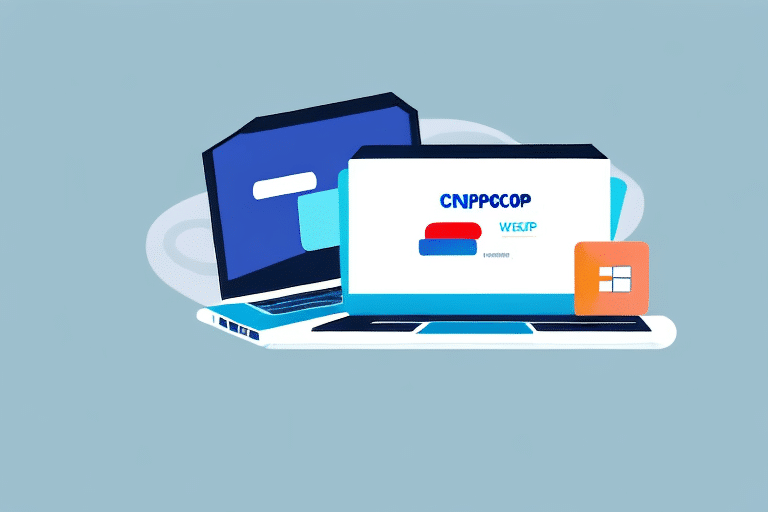Accepting Online Payments on Your Retail Site: A Comprehensive Guide
As the world becomes increasingly digital, retailers are expanding their presence online to complement their brick-and-mortar stores. However, accepting online payments poses significant challenges, especially for small business owners unfamiliar with payment gateways and merchant accounts. This guide provides everything you need to know about seamlessly integrating online payments into your retail site.
Understanding Payment Gateways
Before accepting online payments, it's essential to grasp what payment gateways are and how they function.
What Are Payment Gateways?
Payment gateways are software solutions that connect your online store to financial networks, acting as intermediaries between your website and customers' banks to securely process payments in real-time.
How Payment Gateways Operate
Payment gateways encrypt sensitive customer information, such as credit card details, and transmit it to the payment processor for authorization. Upon approval, the gateway sends a confirmation back to your site, completing the transaction.
Benefits of Using Payment Gateways
- Enhanced Security: Encryption and fraud detection protect both you and your customers.
- Convenience: Streamlined payment processes improve customer experience.
- Global Reach: Accept payments from customers worldwide, expanding your market.
According to a Statista report, global e-commerce sales are projected to reach $6.4 trillion by 2024, highlighting the importance of robust payment systems.
Types of Payment Gateways
- Hosted Payment Gateways: Redirect customers to a separate payment page, offering ease of setup with minimal technical requirements.
- Integrated Payment Gateways: Allow customers to complete transactions directly on your website, providing a seamless user experience.
Choosing between hosted and integrated gateways depends on your business needs and technical capabilities.
Merchant Accounts: Essential Insights
A merchant account is a specialized bank account that enables your business to accept credit and debit card payments.
Choosing the Right Merchant Account
Consider factors such as processing fees, transaction rates, contract terms, and security features when selecting a merchant account provider. Research and compare multiple providers to find the best fit for your business.
Understanding Fees and Charges
Merchant accounts come with various fees, including:
- Transaction Fees: Charged per processed transaction.
- Chargeback Fees: Applied when a customer disputes a transaction.
- Monthly Fees: Regular fees for maintaining the account.
Transparency in fee structures is crucial to manage your business’s profitability effectively.
Benefits of a Merchant Account
- Wider Payment Options: Accept a range of payment methods, enhancing customer satisfaction.
- Fraud Protection: Many accounts include measures to safeguard against fraudulent activities.
- Improved Cash Flow: Faster processing times mean quicker access to funds.
Payment Gateway vs. Merchant Account: Key Differences
While both payment gateways and merchant accounts are essential for online transactions, they serve distinct roles.
Payment Gateways
Handle the technical aspects of transaction processing, including data encryption and transfer between your site and financial institutions.
Merchant Accounts
Hold the funds from transactions before transferring them to your business bank account.
Choosing the Right Combination
Some providers offer bundled services that include both a payment gateway and a merchant account, simplifying the setup process. Evaluate the fees and features of bundled versus separate services to determine the best option for your business.
Integrating Payment Systems for Seamless Transactions
Effective integration of payment gateways and merchant accounts ensures smooth and efficient online transactions.
Best Practices for Integration
- Ensure Compatibility: Verify that your website platform supports your chosen payment gateway.
- Secure Transactions: Implement SSL or HTTPS to protect payment data.
- Regulatory Compliance: Adhere to PCI-DSS and other relevant standards.
Enhancing User Experience
A user-friendly payment process reduces cart abandonment rates. Provide clear instructions, multiple payment options, and real-time feedback to enhance customer satisfaction.
Securing Online Transactions
Protecting customer financial information is paramount to maintaining trust and avoiding data breaches.
Security Best Practices
- Strong Passwords: Use robust passwords for all accounts related to payment processing.
- Data Encryption: Encrypt sensitive data to prevent unauthorized access.
- Regular Updates: Keep payment software up-to-date to patch vulnerabilities.
Educating Customers
Encourage customers to follow safe online payment practices, such as using strong passwords and monitoring their accounts for suspicious activity.
Top Payment Gateway and Merchant Account Providers
Choosing the right provider is critical for efficient and secure payment processing.
Leading Providers
- PayPal: Widely recognized with robust security features.
- Stripe: Developer-friendly with extensive customization options.
- Authorize.Net: Reliable with comprehensive fraud prevention tools.
- Square: Ideal for small businesses with easy setup.
Evaluate each provider based on transaction fees, security measures, customer support, and additional features to determine the best fit for your business.
Regulatory Compliance for Payment Systems
Staying compliant with regulations is essential to avoid legal repercussions and maintain customer trust.
Key Regulations
- PCI-DSS: Ensures secure handling of credit card information.
- GDPR: Governs the collection and processing of personal data within the EU.
- AML: Prevents money laundering and terrorist financing through stringent verification processes.
Industry-Specific Compliance
Different industries may have additional regulations. For example, healthcare businesses must comply with HIPAA, while online retailers should adhere to FTC guidelines on consumer protection.
Troubleshooting Common Payment Issues
Despite best efforts, issues may arise in processing online payments. Here's how to address them effectively.
Common Problems and Solutions
- Transaction Failures: Check network connectivity and payment gateway status.
- Declined Payments: Verify customer details and ensure sufficient funds.
- Technical Errors: Update software and consult provider support if issues persist.
Efficient Resolution Strategies
Maintain open communication with your payment provider’s support team. Provide detailed information and documentation to expedite problem resolution.
By following the guidelines and best practices outlined in this guide, retailers can confidently accept online payments, ensuring security and enhancing customer satisfaction. Embrace the digital shift and watch your business thrive in the online marketplace!






















